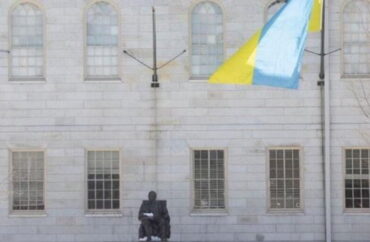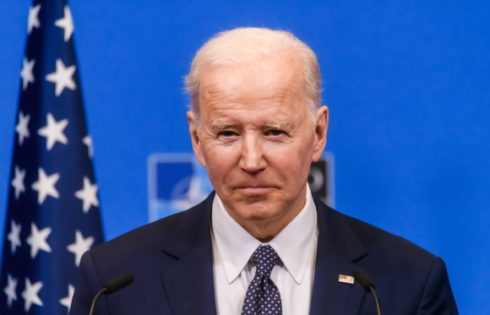
University leaders’ motivation questioned after taking sides on other conflict
Within four days of Russia invading Ukraine, Harvard University raised a Ukrainian flag on campus in solidarity with its people and cause.
While doing so, university leaders condemned the “deplorable actions” of Russian President Vladimir Putin, including his “wanton aggression” against the neighboring European nation.
But today, nearly two weeks since Hamas attacked Israel on Oct. 7, murdering more than 1,300 innocent civilians — women, children, families — The College Fix could find no evidence that Harvard has hoisted Israel’s flag in solidarity.
President Claudine Gay did issue a statement Oct. 12 about the “War in the Middle East,” in which she condemned “the terrorist atrocities perpetrated by Hamas. Such inhumanity is abhorrent, whatever one’s individual views of the origins of longstanding conflicts in the region.”
Three days earlier, university leaders also issued a joint statement describing their grief and horror at the violence against Israeli citizens. The Economist described Oct. 7 as the “bloodiest in Israel’s history,” with more than 1,300 dead and 3,300 injured from the Hamas attack.
But, unlike Harvard’s response to the Russia-Ukraine conflict, it has not taken any visible action in solidarity with Israel.
The College Fix contacted the Harvard media department and vice president’s and president’s offices to ask if the university is flying a flag in support of Israel as it did with Ukraine last year.
None responded to requests for comment in the past two days.
In contrast to the Ukraine-Russia situation, Harvard administrators’ statements about Israel and Hamas appear carefully crafted to remain neutral.
Journalist Abigail Shrier questioned the inconsistency in a post on X this week, accusing Gay of equivocating “for days on whether even to condemn Hamas, much less its joyful celebrants on her own campus.”
Just days after the attack, dozens of student groups at Harvard signed a letter blaming Israel for the terrorism.
In an Oct. 12 video message “Our Choices,” Gay did respond, urging the campus community not to “fan the flames of division and hatred that are roiling the world.” She also reminded students that freedom of speech includes “objectionable” and “outrageous” views.
Gay acknowledged there are questions about the university’s stance on the conflict, but she did not commit to a position. In the video, she only said Harvard “rejects terrorism,” including the “barbaric atrocities perpetrated by Hamas,” “rejects hate” of Jews and Muslims, and “rejects the harassment or intimidation of individuals based on their beliefs.”
But for many, remaining neutral on one conflict and taking sides on another raises questions about Harvard leaders’ motivations – something Shrier speculated about in her response on X this week.
“Has Harvard’s moral compass broken in the last 20 months? Or did Gay’s arm need to be twisted even into condemning the butchery simply because the targets were Jews?” she wrote.
MORE: Harvard student groups blame Israel for recent terror attacks
IMAGE: Harvard screenshot
Like The College Fix on Facebook / Follow us on Twitter







Please join the conversation about our stories on Facebook, Twitter, Instagram, Reddit, MeWe, Rumble, Gab, Minds and Gettr.